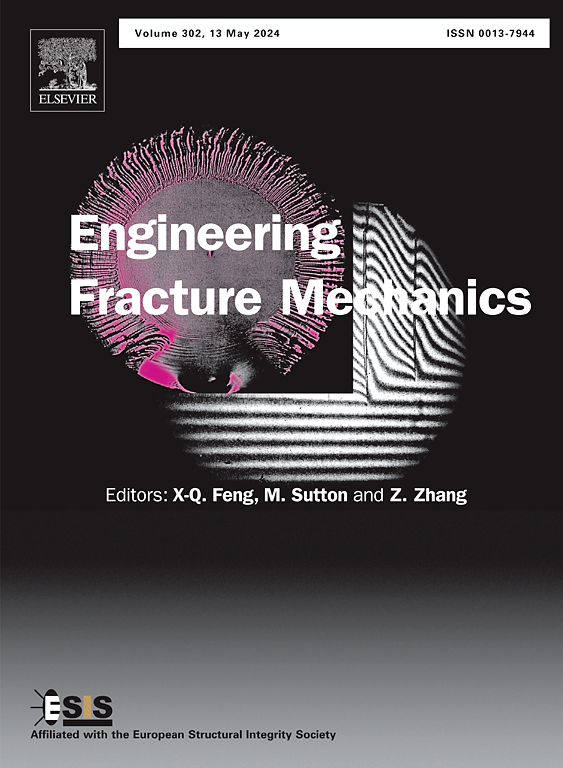Parameter investigation and efficiency evaluation of unified phase-field theory in mesoscale fracture analysis of fully-graded concrete under uniaxial tension
IF 4.7
2区 工程技术
Q1 MECHANICS
引用次数: 0
Abstract
This study investigates the parameter sensitivity and computational efficiency of the Phase-field Cohesive Zone Model (PF-CZM) for mesoscale fracture behavior simulation of fully-graded concrete under uniaxial tension. The developed mesoscale model exhibits relatively low mesh sensitivity and successfully captures the complete crack propagation path from damage initiation to ultimate failure in concrete. By integrating classical experimental results, this study evaluates the influence of computational parameters on the simulation results of fully-graded concrete specimens, including time-stepping, convergence tolerance, length scale parameter and mesh element size. The findings indicate that the mechanical response and energy variation of concrete during the plastic and softening stages are closely related to the time-stepping, while the computational efficiency is highly dependent on both time-stepping and convergence tolerance. Furthermore, the effective preferences are recommended for these computational parameters. Based on the evaluation results of the obtained parameters, the adjusted mesoscale model primarily shows dispersed cracks randomly distributed around the aggregates in the vertical direction, without excessive localized discrete damage. The unified phase-field damage theory was systematically validated for its applicability and effectiveness in heterogeneous quasi-brittle materials during this process.
求助全文
约1分钟内获得全文
求助全文
来源期刊
CiteScore
8.70
自引率
13.00%
发文量
606
审稿时长
74 days
期刊介绍:
EFM covers a broad range of topics in fracture mechanics to be of interest and use to both researchers and practitioners. Contributions are welcome which address the fracture behavior of conventional engineering material systems as well as newly emerging material systems. Contributions on developments in the areas of mechanics and materials science strongly related to fracture mechanics are also welcome. Papers on fatigue are welcome if they treat the fatigue process using the methods of fracture mechanics.

 求助内容:
求助内容: 应助结果提醒方式:
应助结果提醒方式:


